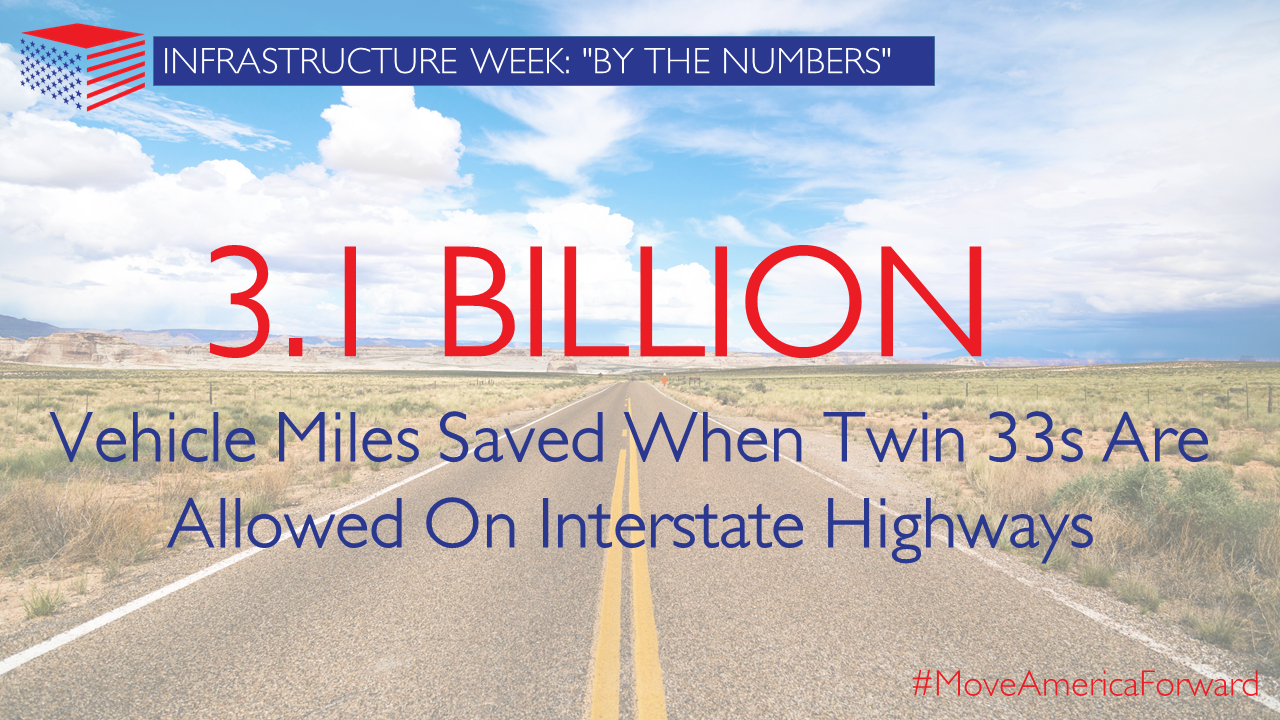With Infrastructure Week entering the home stretch, Americans For Modern Transportation (AMT) presents the fourth post of our “By The Numbers” series. As a broad set of industries committed to moving goods across the American economy, we continue to support policy upgrades and infrastructure investment to meet the demands of modern businesses and consumers. Together, we can move America toward a safe, efficient, and sustainable future.

While much of the recent infrastructure dialogue has focused on increased funding, this Infrastructure Week, we also must underscore the importance of adopting advanced technologies and ensuring policies support a modern system. For example, one source of untapped efficiency, that would require zero government funding, is the widespread adoption of Twin 33 trailers.
Currently Twin 33 trailers operate safely in 20 states, but outdated policies prevent them from traveling on interstate highways nationwide. These trailers, which are just five feet longer than the current double 28 configuration and would only operate where Twin 28s currently operate, allow shippers to meet the growing demands placed on the industry without impacting safety or altering weight restrictions on our highways.
Additionally, a recent study conducted by 35-year traffic safety researcher Ronald Knipling found that the widespread adoption of Twin 33 trailers would result in 3.1 billion fewer vehicle miles traveled. These saved miles translate to a safer and more efficient transportation network, all while helping to meet the demands of the modern consumer.
Key findings from the study found that in 2014, a shift to Twin 33s would have:
· Resulted in 4,500 fewer accidents due to fewer trucks on the road and increased safety performance.
· Saved 255.2 million gallons of fuel and reduced carbon emissions by nearly 3 million tons. These clean air improvements would be like taking 551,000 cars off the highways.
· Dramatically reduced congestion, decreasing travel delay time by 53.2 million hours.
· Saved $2.6 billion in shipping costs.
Fortunately, legislation allowing widespread use of Twin 33s on the nation’s highway may be closer to getting approved by Congress, according to supply chain expert Clifford Lynch.
“If one takes this report at face value—and so far, there seems to be no reason not to—it would be difficult for legislators to ignore the potential benefits of using T-33s. No doubt, there will be lengthy partisan debates. But at this point, I think the prospects of passage look good.”
